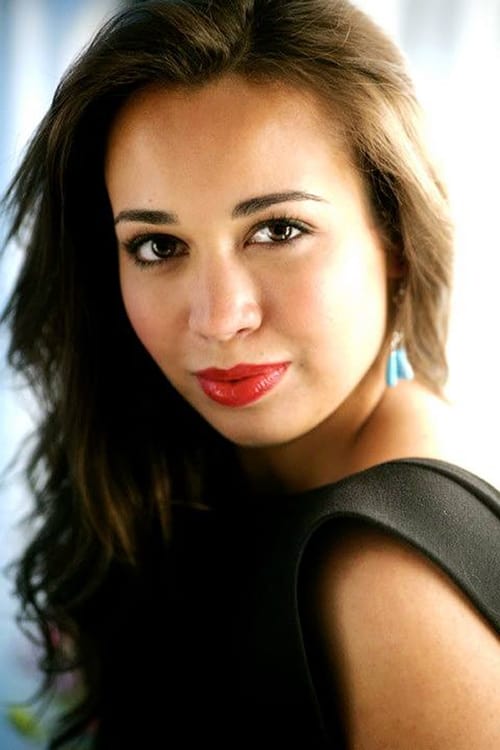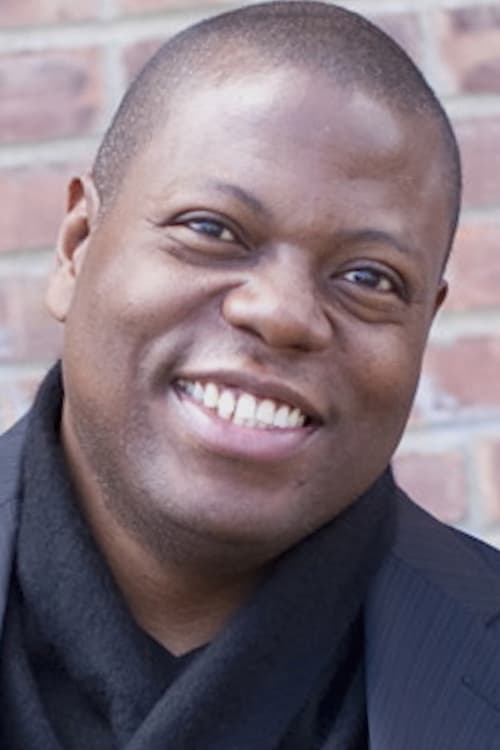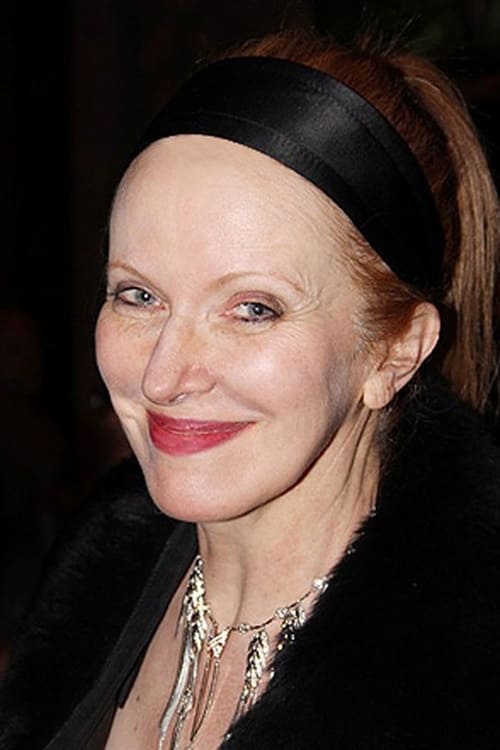The Metropolitan Opera: Romeo et Juliette (2024)
Género : Música
Tiempo de ejecución : 3H 30M
Director : Bartlett Sher
Sinopsis
Two singers at the height of their powers—radiant soprano Nadine Sierra and tenor sensation Benjamin Bernheim—come together as the star-crossed lovers in Gounod’s sumptuous Shakespeare adaptation, with Met Music Director Yannick Nézet-Séguin on the podium to conduct one of the repertoire’s most romantic scores. Bartlett Sher’s elegant staging also features baritone Will Liverman and tenor Frederick Ballentine as the archrivals Mercutio and Tybalt, mezzo-soprano Samantha Hankey as the mischievous pageboy Stéphano, and bass-baritone Alfred Walker as Frère Laurent.
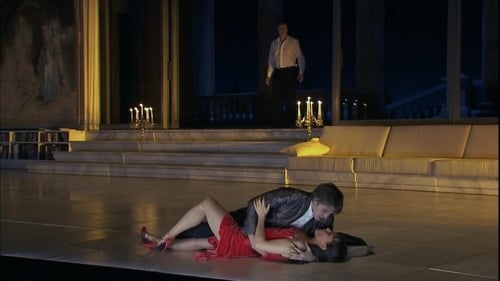
Who loves whom in Così fan tutte, Mozart’s and Da Ponte’s cruelly comic reflection on desire, fidelity and betrayal? Or have the confusions to which the main characters subject one another ensured that in spite of the heartfelt love duets and superficially fleetfooted comedy nothing will work any longer and that a sense of emotional erosion has replaced true feelings? Così fan tutte is a timeless work full of questions that affect us all. The Academy Award-winning director Michael Haneke once said that he was merely being precise and did not want to distort reality. In only his second opera production after Don Giovanni in 2006, he presents what ARTE described as a “disillusioned vision of love in an ice-cold, realistic interpretation”.

La traviata (Italian: [la traˈviaːta], "The Fallen Woman"[1][2]) is an opera in three acts by Giuseppe Verdi set to an Italian libretto by Francesco Maria Piave. It is based on La dame aux Camélias (1852), a play adapted from the novel by Alexandre Dumas, fils. The opera was originally entitled Violetta, after the main character. It was first performed on 6 March 1853 at the La Fenice opera house in Venice. Piave and Verdi wanted to follow Dumas in giving the opera a contemporary setting, but the authorities at La Fenice insisted that it be set in the past, "c. 1700". It was not until the 1880s that the composer and librettist's original wishes were carried out and "realistic" productions were staged.[3]

Die Walküre (The Valkyrie), WWV 86B, is an opera in three acts by Richard Wagner with a German libretto by the composer. It is the second of the four operas that form Wagner's cycle Der Ring des Nibelungen (The Ring of the Nibelung). The story of the opera is based on the Norse mythology told in the Volsunga Saga and the Poetic Edda.[1][2] In Norse mythology, a valkyrie is one in a group of female figures who decide which soldiers die in battle and which live. Die Walküre's best-known excerpt is the "Ride of the Valkyries". DVD release June 2009.


La Cenerentola, ossia La bontà in trionfo (Cinderella, or Goodness Triumphant) is an operatic dramma giocoso in two acts by Gioachino Rossini. The libretto was written by Jacopo Ferretti, based on the fairy tale Cendrillon by Charles Perrault. The opera was first performed in Rome's Teatro Valle on 25 January 1817.---- IMDB id refers to Great Performances: Season 24, Episode 12
La Cenerentola (3 Apr. 1996) from Houston Grand Opera so release date is misleading.

With more than 50 years of experience as film director, Peter Greenaway (Nightwatching, Eisenstein in Guanajuato) combines the worlds of film and opera at the Verdi Festival in Parma, demonstrating what magic those two can do together with an all new approach to Giuseppe Verdi's Giovanna d'Arco, staged and edited by himself and his wife, Saskia Boddeke. The opera's libretto is based on Friedrich Schiller's 'The Maid of Orleans'. It tells the story of the French national hero Jeanne d'Arc, who defends her country against the English troops during the Hundred Years' War. Constantly torn between her humble roots, her love for King Charles VII and her heavenly task to fight for France, she gains eternal glory by giving her life in the final, victorious battle against England.
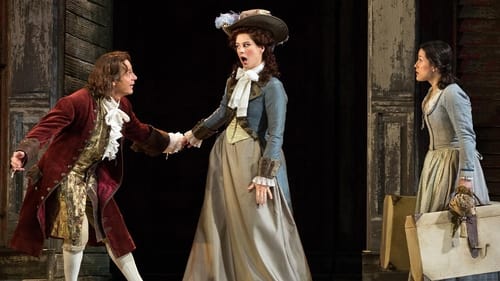
Esta ópera es muy oportuna dada su ubicación en la Europa feudal antes de la Revolución Francesa, donde el crimen cometido por los ricos y poderosos quede impune. Don Giovanni, a Lech notorio y violador, intenta llevar fuera de la virginal Donna Anna en contra de su voluntad, y mata a su anciano padre a sangre fría después de que él está atrapado. Sin embargo, Giovanni se escapa con su identidad oculta por una máscara, y Donna Anna se llena con un ansia de venganza contra el atacante enmascarado, e incluso rechaza los avances de la clase Ottavio que realmente se preocupa por ella.

It's an event that draws many thousands of music lovers to one of the most beautiful cities in the world every summer: the opera season at the ancient Arena di Verona. The 2,000-year-old roman amphiteatre with its gigantic stage dimensions is one of the largest and best preserved Roman construction of its kind, and with over 22,000 seats it is undoubtedly one of the most spectacular open-air venues of the world! The revered master of opera Franco Zeffirelli, who died shortly before the premiere of Il Trovatore, created a legendary scenery with groups of giant sized armoured knights, a fortress turning into a luminous cathedral, an enormous choir, horses, breathtaking fights: “his perhaps best arena production” (Opernglas). It brings Anna Netrebko to the Arena of Verona where she is giving her much-anticipated debut in one of Giuseppe Verdi’s most popular operas.

The film follows the staging of the opera Olimpiade while at the same time exploring the dramatic life of its composer Josef Mysliveček, a friend and teacher of W. A. Mozart.
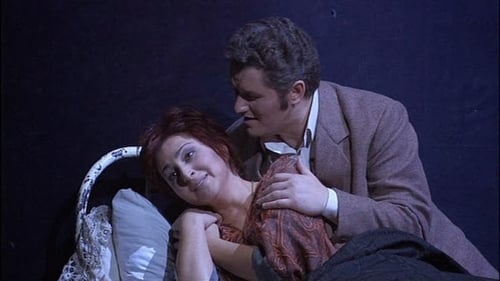
This DVD of a live 2005 performance from the Zürich Opera under the musical direction of Franz Welser-Möst has many things to recommend it -- the young tenor Piotr Beczala as Alfredo, the marvelous Thomas Hampson as Giorgio Germont, the playing of the Zurich Opera orchestra, the simple but effective sets by by Erich Wonder, the uncluttered stage direction by Jürgen Flimm. It also has some flaws: strangely variable volume level of the recorded sound sometimes coming on so loud as to make one reach for the volume control, and the uneven performance of the Violetta, Eva Mei who, for all her merits, gives a dramatically effective performance marred by occasional difficulties with vocal production. Still, overall I felt this was a moving production, one that I would recommend, although perhaps not as an only DVD of one of Verdi's most popular operas.
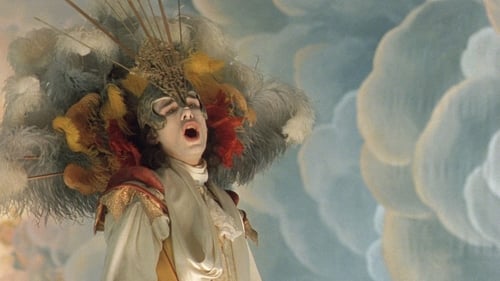
Relato de la vida de Carlo Broschi, célebre castrado que triunfó en la ópera en el XVIII. Con 32 años y en la cumbre del éxito, Farinelli, artista que en el siglo XVIII ennobleció el arte del canto, se retira misteriosamente para dedicar en exclusividad al rey Felipe V de España su prodigiosa voz. Doce años antes, Farinelli y un virtuoso trompetista miden su destreza musical en una plaza repleta de curiosos. El joven cantante impone con facilidad su voz pura y perfecta. El público, entusiasmado, le aclama. Haendel, el compositor oficial de la corte de Inglaterra, que ha asistido a la representación oculto en su carroza, propone a Farinelli que vaya a Londres. Este encuentro supone el inicio de una relación marcada por el odio y la admiración mutua.

Segunda Guerra Mundial (1939-1945). Parodia de la ocupación de Francia por los alemanes. Terry-Thomas es un piloto inglés que se encuentra perdido en la Francia ocupada, mientras que Bourvil y Louis de Funès son dos parisinos que, casi involuntariamente, ayudan a la resistencia contra los nazis. Un film que en Francia obtuvo un enorme éxito de taquilla.
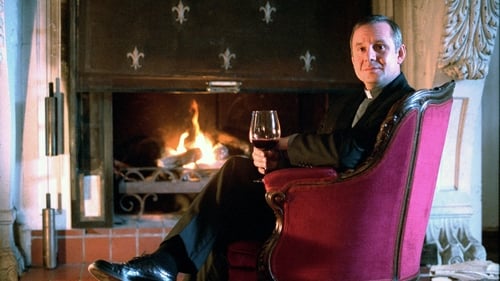
A man who accused a catholic bishop of abusing him when he was a child dies in the Austrian city Salzburg. Everyone except his widow and the eccentrical detective Simon Brenner keeps silent and believes that the man killed himself.
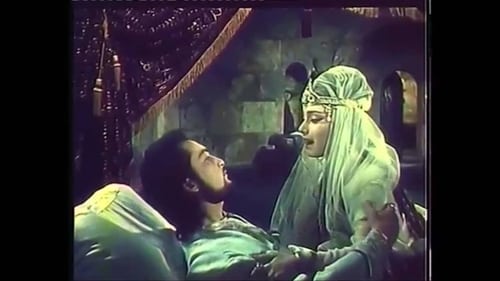
Prince Abesalom runs into an orphaned Eteri while hunting, falls for her and brings the woman to his palace as his fiancé. The Prince’s aid Murman loses his self-control at Eteri’s beauty and gives her a spelled necklace as a wedding gift. Eteri contracts a mysterious disease that only Murman is capable to heal.
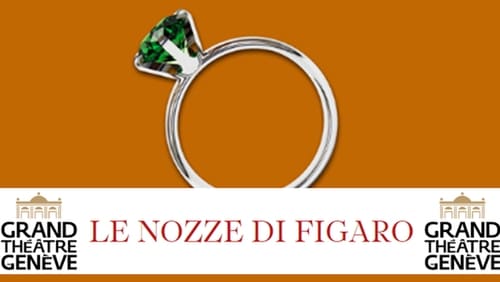
The production bears the imprint of the conductor, Marko Letonja, and the director, Tobias Richter, whose understanding is ideal: both breathe a troupe spirit - specific to comedy - into this heterogeneous cast, which brings together young and old. Both give as much importance to recitatives as to arias and ensembles.

Christine Goerke has wowed audiences as Turandot, the icy princess at the heart of Puccini’s grand final masterpiece. In this performance from the 2019–20 Live in HD season, Goerke stars alongside tenor Yusif Eyvazov (as Calàf) and soprano Eleonora Buratto (as Liù) in Franco Zeffirelli’s classic staging, which dazzles with its opulent visions of mythic China. Met Music Director Yannick Nézet-Séguin is on the podium, drawing a vivid array of musical colors from the incomparable Met Orchestra and Chorus.

Massenet’s tale of passion, excess, and their consequences stars rising soprano Lisette Oropesa in the effervescent title role. Tenor Michael Fabiano is her ardent admirer, Chevalier des Grieux, with Maurizio Benini conducting Laurent Pelly’s enchanting production.
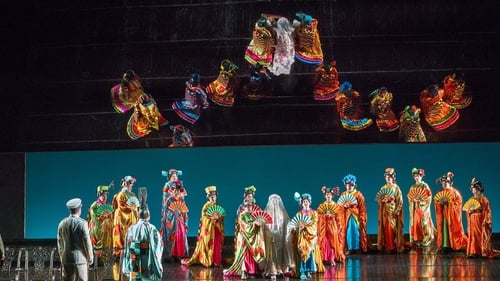
Ever since it opened the 2006–07 season, Anthony Minghella’s striking production of Madama Butterfly has been a Met classic. Drawing inspiration from traditional Japanese theater, Minghella’s staging retells this heartbreaking tale with brilliant stagecraft, bold colors, and bunraku puppetry. In this Live in HD performance from the fall of 2019, Chinese soprano Hui He stars as Cio-Cio-San, the young geisha who puts her trust in a visiting American naval officer, only to later be abandoned by him. In a feat of operatic heroics, tenor Bruce Sledge appears as the callous Pinkterton, stepping into the role on short notice to replace an ailing colleague. Pier Giorgio Morandi conducts one of opera’s most tragic masterpieces, leading a cast that also includes mezzo-soprano Elizabeth DeShong as Cio-Cio-San’s loyal companion, Suzuki, and Tony Award–winning baritone Paulo Szot as the U.S. consul Sharpless.

Philip Glass’ opera “Akhnaten”, premiered in Stuttgart in 1984, forms the third part of the portrait opera trilogy about personalities who have influenced the course of human history. The conclusion of the trilogy deals with the ancient Egyptian pharaoh Akhenaten, who attempted to establish a kind of monotheistic cult around the god Aton during his reign in the 14th century BC, but failed due to the resistance of the priesthood. The production presented here was undoubtedly one of the very great successes of the 2019/20 season at New York’s Metropolitan Opera, due not only to the outstanding cast of singers (led by countertenor Anthony Roth Costanzo) but also to Phelim McDermott’s imaginative staging, which captivates with sometimes breathtaking imagery.

